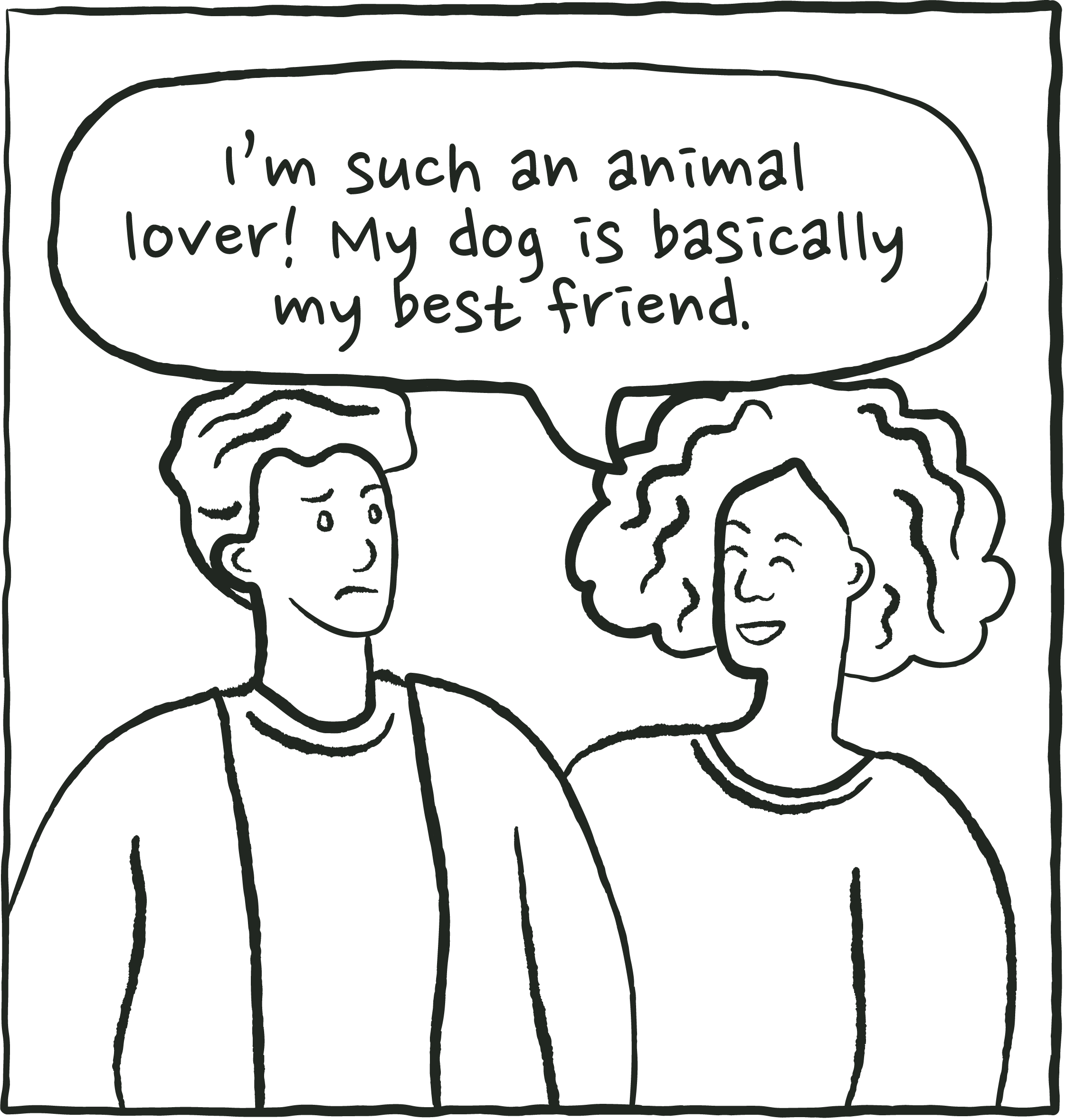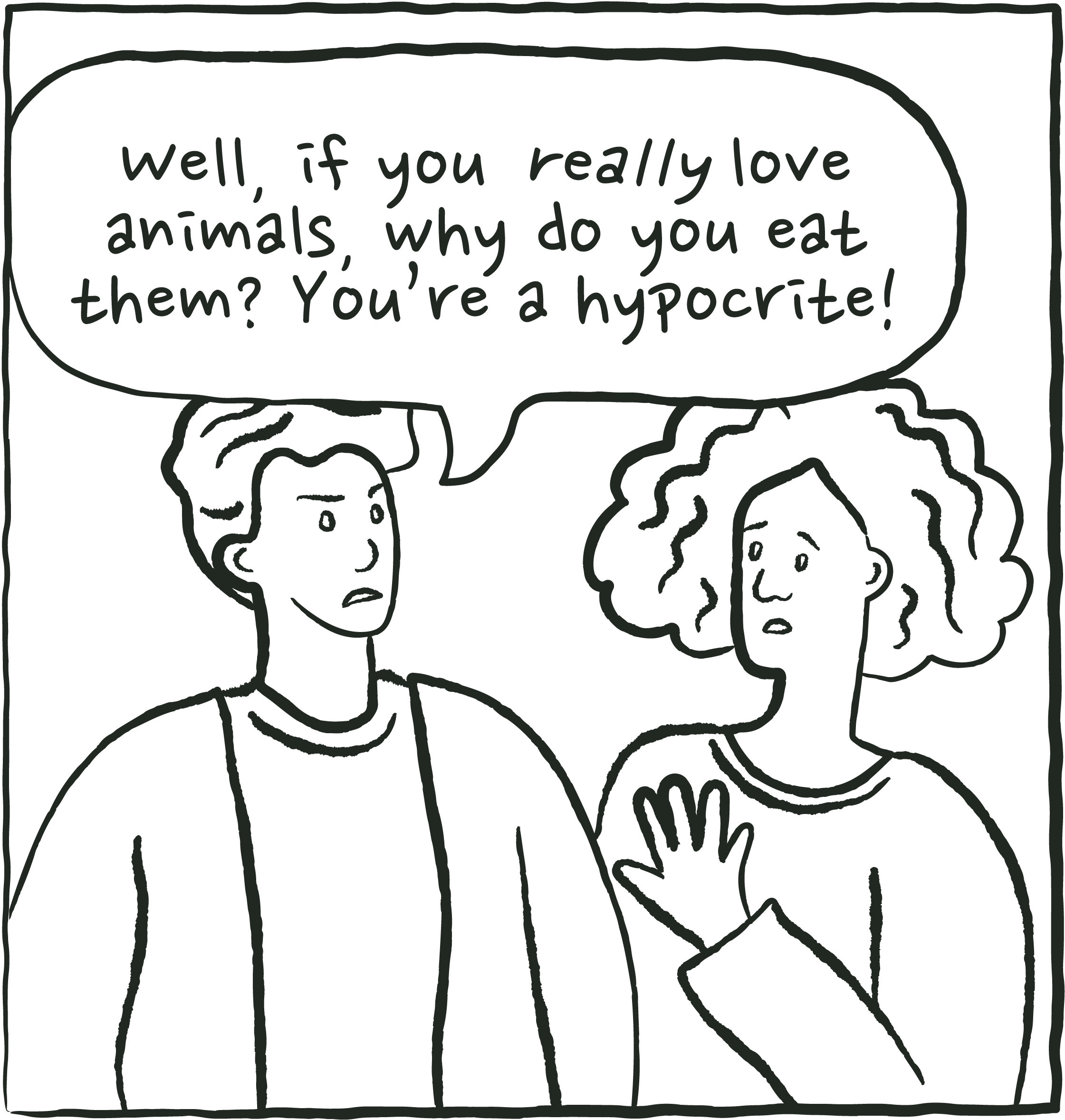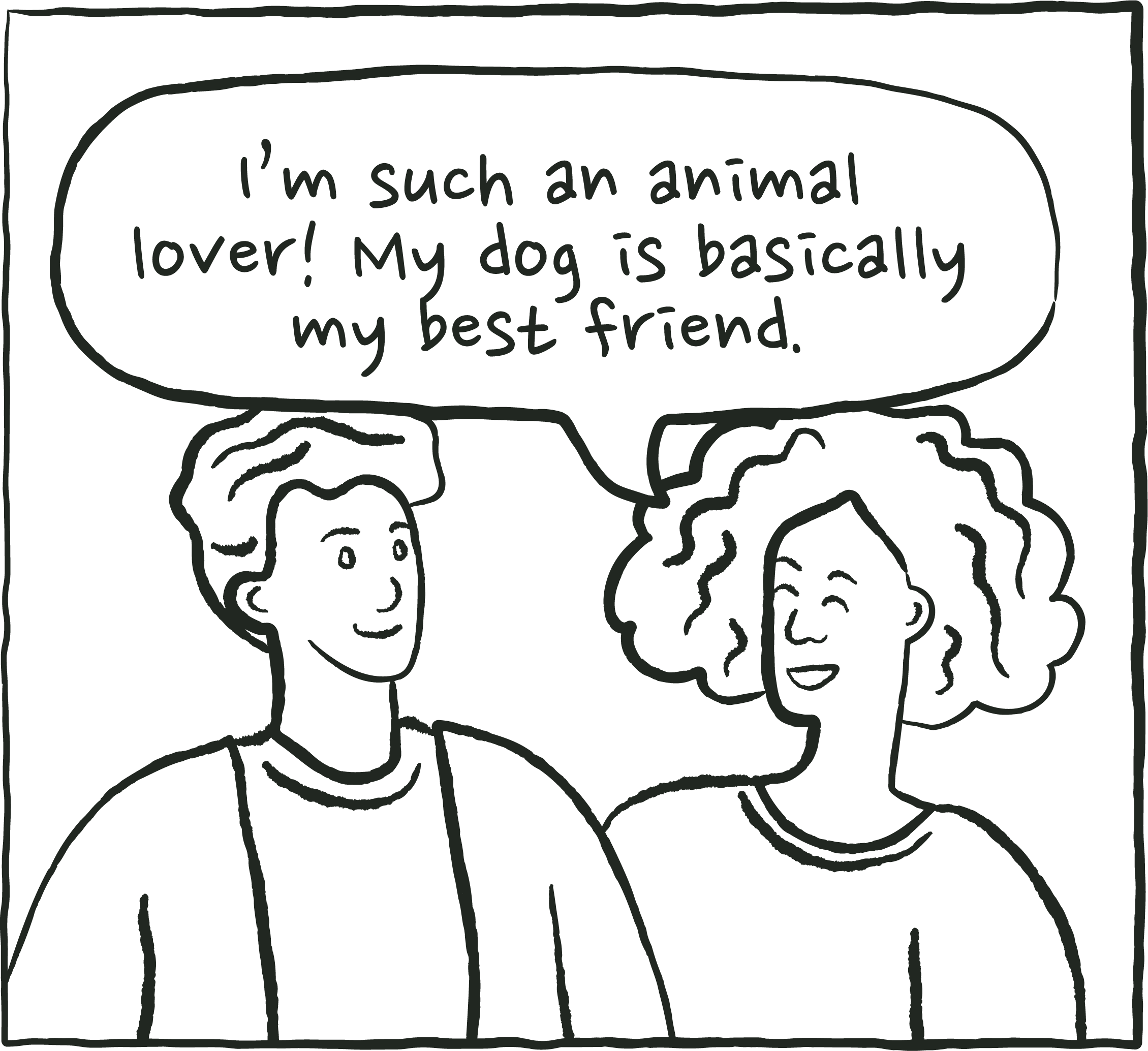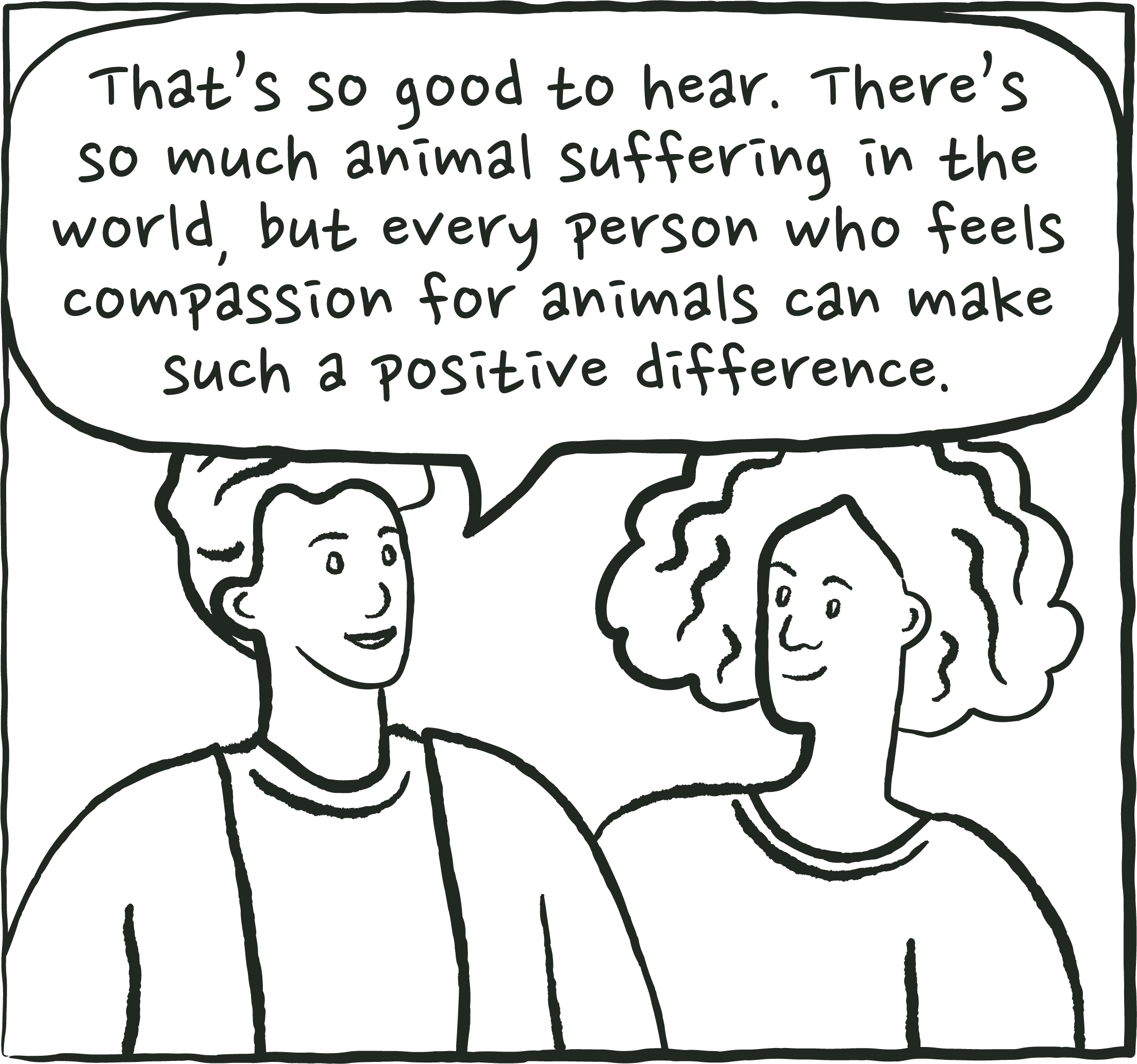I get angry when people say they love animals but they aren’t vegan
How do you respond when a nonvegan tells you they’re an “animal lover”?


If you’ve ever reacted something like this, you’re not alone! Many vegans feel angry in this situation. Anger is our emotional response to injustice—to anything we perceive as being unfair.
Our anger can be an important sign that our moral compass is working, and it can motivate us to take action to address the injustice.

Relate to your anger in a healthy way
While feeling our anger is important, how we relate to our anger is even more important, especially when it comes to being able to effectively discuss eating animals. When we relate to our anger in an unhealthy way, we’ve been hijacked by it—we’re looking at the world through the lens of our anger. This can cause us to express contempt for the person who triggered our anger—such as by labeling them a “hypocrite” or even an “animal abuser.” This can cause them to feel shamed, and shame makes people defensive and less likely to change their behavior.
In contrast, when we relate to our anger in a healthy way, we recognize it as an emotion—as a useful data point that can help us determine an effective way to begin addressing the injustice we’re perceiving.

Cultivate a positive identity
One effective way to motivate people to change is to nudge them toward adopting what’s called a “positive” identity, an identity that people want to have. We can do this by helping them realize that they already share the values that we want them to practice more fully, values such as compassion.
Here’s what you could say:


By cultivating positive identities and watering the seeds of the behaviors we want to grow, we help people bring their behaviors into better alignment with their values.

Avoid reductive thinking
It can also be helpful to avoid “reductive thinking,” which means reducing a person to nothing more than a behavior in our minds—for example, reducing a nonvegan to the “evil animal-eater.”
But it’s important to remember that nonvegans are more than just their nonvegan beliefs and behaviors—and that, because of carnism, good people can participate in harmful practices. Whenever we try to talk about animal suffering or veganism with nonvegans, recognizing that carnism is the reason why otherwise compassionate people eat animals can help us avoid shaming people.

Let impact be your guide
Another effective strategy for responding to your anger in a healthy way is to recognize the very useful roles that nonvegans can play in strengthening veganism. Watch this video to learn about how nonvegans can become allies to vegans in the transformation of carnism.